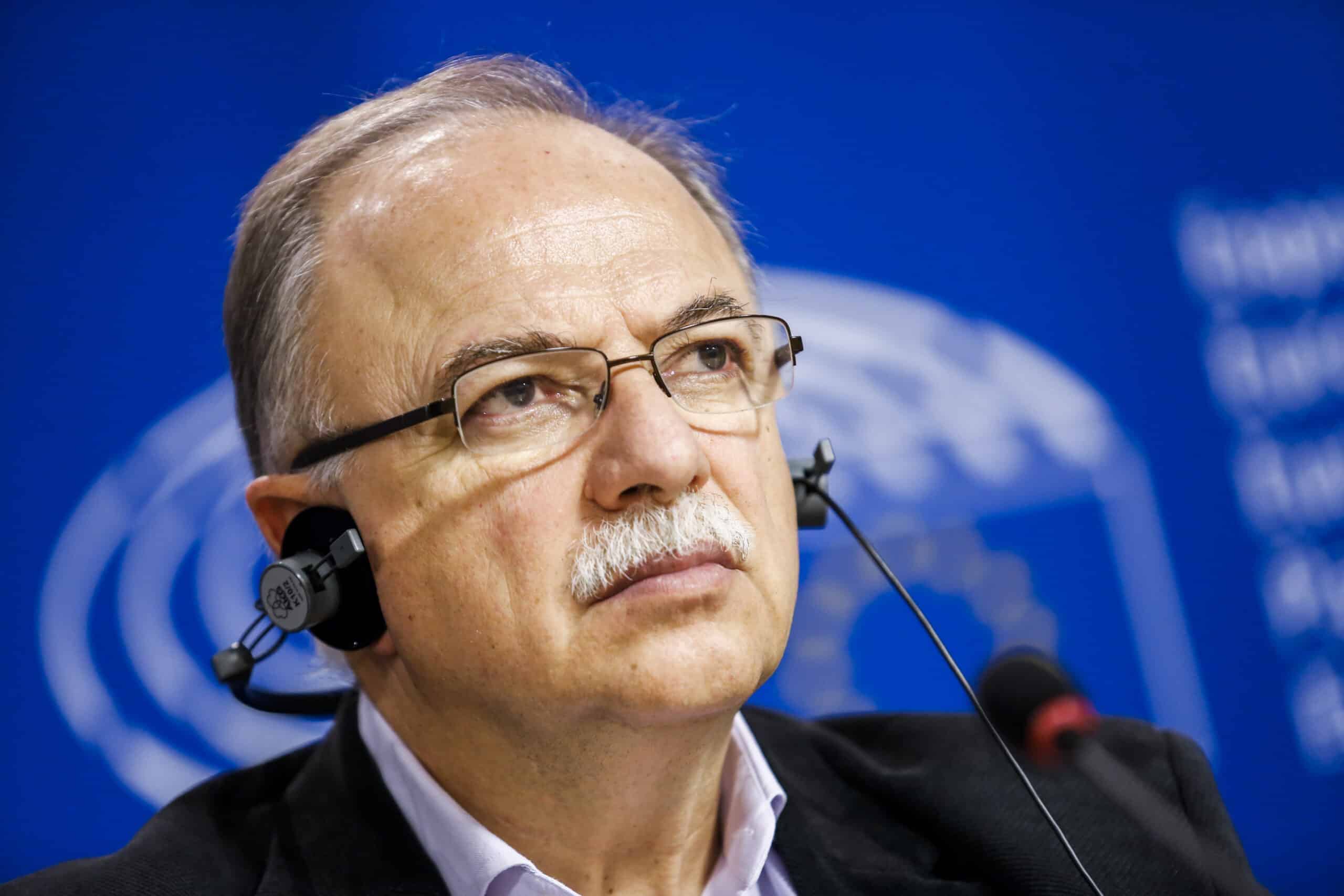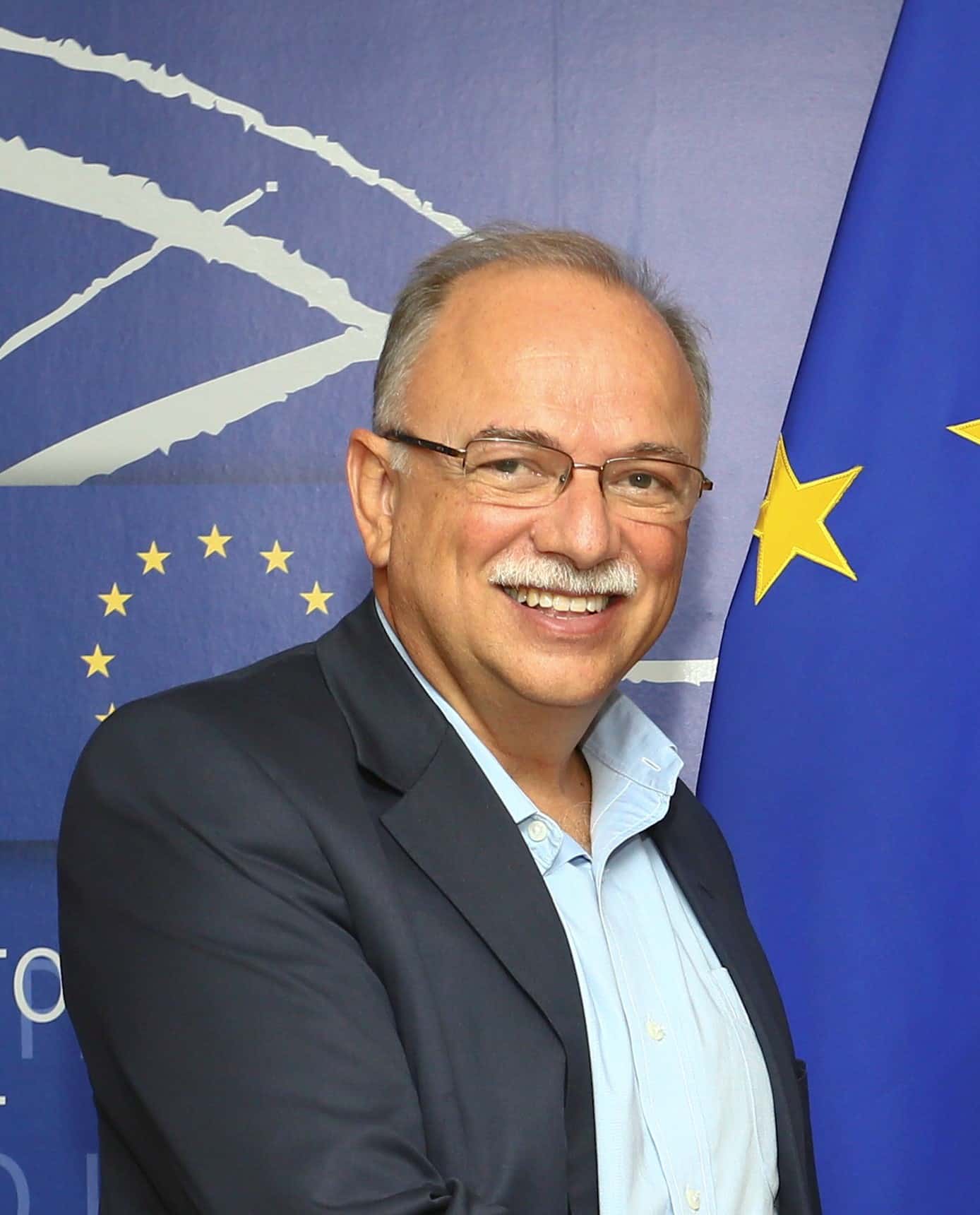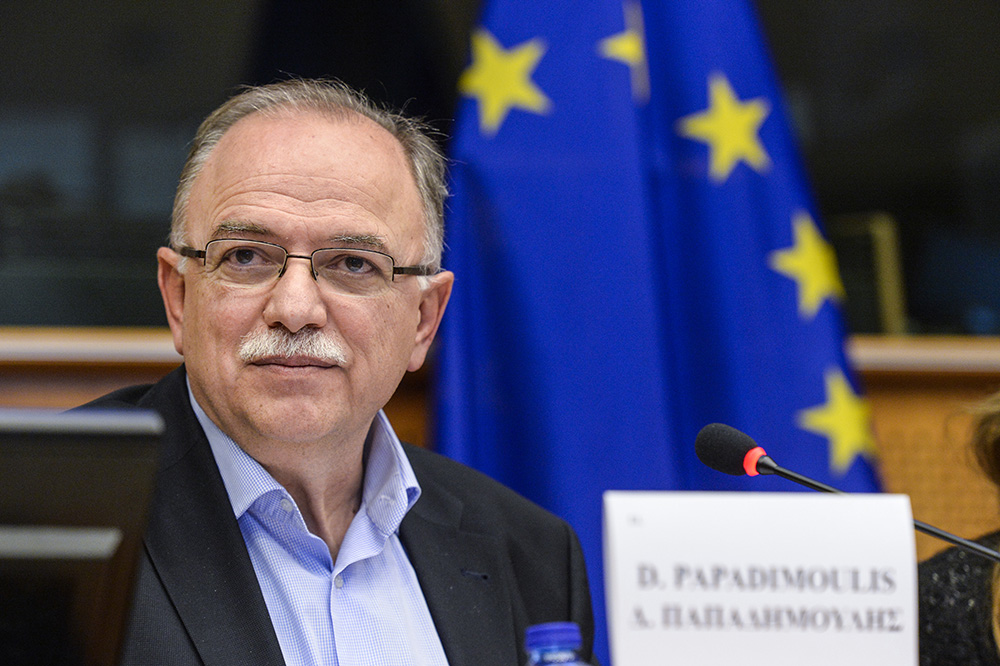Dimitrios Papadimoulis is one of Greece's most influential Members of the European Parliament, especially as he is the Vice-President of the European Parliament and Head of the SYRIZA-Progressive Alliance delegation.
Not only is he Greece's most influential MEP, he is in fact a Top 10 influential MEP in the entire European Parliament, an impressive feat considering there are 705 MEPs.
The experienced MEP spoke with Greek City Times about a variety of issues, including the COVID-19 pandemic in Greece, the state of the economy, and geopolitical issues including Turkish aggression against Greece.

Firstly, congratulations Mr. Dimitrios Papadimoulis on being voted the most influential Greek MEP and the ninth most influential MEP for 2020. For you, what was your personal stand out achievement in the European Parliament and for SYRIZA as a party?
My ranking in the top 10 MEPs with the greatest political and social influence, among the 705 of the European Parliament from 27 Member States, is a great honor for me and for Greece.
But the responsibility is greater because I am the only Greek with this important distinction and also, the only Greek in the Bureau of the European Parliament - elected with a percentage of over 60%.
My responsibility is growing because Greek citizens nominated me as the first MEP in votes of preference from the SYRIZA-Progressive Alliance in the 2019 elections.
I think that this honorable distinction at European level is due to both the work I have done as Vice-President of the European Parliament from 2014 until today, and to my constant effort to represent not only my party's policy but also the interests of Greece in a Europe where intense competition and strong interests prevail.
I consider this important, and a commitment to continue working with my team, in order to represent as worthily as I can, first Greece - the Greek people, but also the almost 300,000 fellow Greek citizens who honored me personally with their trust.
At the beginning of 2020, Greece received international praise for its handling of COVID-19. However, the second wave is aggressive. SYRIZA has criticized the ruling government’s handling of the second wave.
What was the weakness in New Democracy’s policies in your view?
The country's initial success in the first wave of the pandemic gave the government time to better prepare for the second wave.
However, it has completely failed and bears serious responsibility for the great deterioration in the second wave:
- For the unacceptable situation in public transport,
- The absence of state controls in large workplaces, the insufficient strengthening of the National Health System,
- The opening of tourism, the uneven measures in the implementation of restrictive lockdown,
- The micropolitical tolerance of anti-social behavior from some Hierarchs of the Greek Orthodox Church that became a topic in the international media, and
- The serious delay on taking measures in Thessaloniki.
SYRIZA does not adopt an opposition of mourning and shouting. We refuse to imitate the miserable opposition that New Democracy practiced for the tragedy in Mati, Mandra, and even the seasonal flu.
But just as the government rushed to credit itself with the initial success of "We Stay at Home", it now owes an acceptance of its failure to tackle the second wave.
We, at SYRIZA-Progressive Alliance, backed up the need to deal with the pandemic from the beginning - we proposed a six-month national plan and a Minister of Health of common acceptance.
We received a loud NO.
The Prime Minister even went so far as to claim that "Greece is doing well in the second wave of the pandemic, better than the first"!
When SYRIZA-Progressive Alliance, with substantiated proposals, demanded more generous and forward-looking measures for the economy, New Democracy said that the recession would be at most 4%.
[The Governor of the Bank of Greece] Mr. Yannis Stournaras, in fact, claimed that we will not have a recession at all!Now, unfortunately, Greece is recording one of the biggest recessions in Europe.
Greece has been suffering from an economic crisis for over a decade now and COVID-19 has certainly not helped the situation. However, there is now a flurry of foreign investments from major corporations coming into Greece, such Microsoft, Amazon and Volkswagen.
Will these foreign investments benefit the Greek economy, and more importantly, will these foreign investments benefit ordinary citizens or just a select few individuals?
Both SYRIZA-Progressive Alliance and I are completely open and positive to foreign and domestic investments, especially in the field of new technologies.
Greece has gone through a bankruptcy and a decade of harsh memorandum and austerity measures that have caused a great recession and disinvestment.
In order to be able to attract investments that are beneficial, not only for investors but also for our country, creating employment, more wealth and giving tax revenues to the state, we need a plan and serious changes in the country.
We need to improve the investment environment - which means:
- Quicker and more effective delivery of justice,
- Establish modern rules and reduction of bureaucracy,
- Digitize the administration,
- Reduce the client state and corruption, and
- Have clear tax, administrative and development incentives.
The specific investments you are referring to will be judged by the result they will have, when and if they are implemented.
However, I have the impression, from what I know so far, that the expectations cultivated for these investments are much higher than their actual size.
For example, in the field of electric cars, the famous German investor turned out to be a start-up company of Albanian-North Macedonian investors, not so big nor so successful, since it was founded only in 2015 and went bankrupt in the next few years.
In any case, foreign investments are welcome, but in this area we want results and not just words that often remain words.
It appears that there is widespread support in the European Parliament to implement sanctions against Turkey for its continuous provocations against Greece and Cyprus.
Why is there such a wide divide between the European Parliament and the European Council regarding sanctions?
The European Parliament, with an overwhelming majority of 631 votes in favor, 3 against and 59 abstentions, called on the European Summit and the EU governments to impose severe sanctions to curb Erdoğan's aggression.
Unfortunately, these sanctions were refused by the Summit, three times in a row: In June, October and December 2020, despite the fact that Kyriakos Mitsotakis had promised, through his representative, "sanctions that will bite".
I understand why Erdoğan is celebrating the stance of the Summit, what I do not understand is why the Greek Prime Minister declared that he is satisfied.
The reason for this glaring contrast between what the European Parliament is asking for and what the Council and European governments are not doing could be described with a single phrase: “cynical economic and geopolitical interests”.
Many European banks are directly exposed to more than $100 billion in Turkey.
There are also very expensive arms export deals to Turkey from many European countries - Germany is first on this, and a strong presence of many multinational companies in the Turkish economy.
There is also the refugee-immigrant tap that Erdoğan holds in his hands, with which he threatens to blackmail the EU leadership.
Now, the Turkish president claims that he wants a dialogue with a positive agenda both between the EU and Turkey and between Greece and Turkey.
Experience, however, shows that this dialogue is not easily able to bear positive fruit.
This is evident from the fact that Erdoğan continued his aggressive tactics despite previous EU warnings and proves that only sanctions, or even the threat of sanctions, could prevent him from escalating the tension further.
Sanctions on energy, trade, sanctions against certain individuals, companies and banks, and even an arms embargo, would send a clear message that the EU is determined to protect peace in the Eastern Mediterranean and security of Member States.

Joe Biden is now the president of the United States and there will inevitably be a change in Washington’s foreign policy.
There has also been a massive boost in U.S.-Greek military relations, is this something that should be viewed positively or as a matter of concern?
Concerning the impact of Biden's election on Greek-Turkish relations, we wait to see whether there will be a significant shift in practice from the "my friend Erdoğan" dogma adopted by Trump, which has given a lot of encouragement to the Turkish President.
This emboldened him to perform all his unilateral, provocative and aggressive actions.
At the same time, we must work hard to build alliances and to end this tolerance of Erdoğan's aggression and provocation.
As a country, we must have good relations with the United States on the basis of mutual benefit.
Our country's interest is to seek relations with all the big players, making Greece present and active in the European mainstream.
And to turn Greece into a country that wants to have good relations with the US but at the same time seeks Chinese investments and cooperation with Russia in energy issues.
Despite the COVID-19 pandemic, 2020 was an active year for Greek diplomacy, with improved relations with Russia, the United Arab Emirates, Syria, Egypt and India, among others.
Is the ruling New Democracy heading in the right direction in terms of boosting Greece's relations outside of the EU and NATO?
For the last year and a half, in all major foreign policy issues, Kyriakos Mitsotakis’ government abandoned its pre-election rhetoric and demagogy, and effectively turned 180 degrees.
They are now forced to pursue basic foreign policy choices initiated by Alexis Tsipras’ government, not only in relations with the Arab World that you are referring to, or relations with India, but also in the important Prespa Agreement with North Macedonia.
The Prespa Agreement was beneficial for Greece as it limited and hindered Erdoğan's plans.
New Democracy accused the SYRIZA government of an alleged betrayal but now declares that it will “honor and implement” the Prespa Agreement.
It does the same with the issues of the agreement with Italy, concerning the extension of our territorial waters to 12 miles on our western sea borders in the Ionian Sea.
In the exploratory talks with Turkey, SYRIZA-Progressive Alliance has been calling for months for a national line on the issues of Greek-Turkish relations.
This would be a firm focus on respecting international law and to seek a co-signed memorandum for an appeal to The Hague.
I find the Prime Minister's refusal to accept the meeting of political leaders for our foreign policy wrong and incomprehensible.
I hold a small basket for the resumption of Greek-Turkish exploratory talks, as Erdoğan's aggression and rhetoric forces us to be cautious.
In these matters, the government should put aside its arrogance and its supposed self-sufficiency and seek to draw up a stable common line and strategy with the widest possible consensus.
As a final question, for 2021, what are your personal goals as Vice President of the European Parliament and for SYRIZA as a party in the European Parliament?
I have three main goals for 2021:
To continue the effort to strengthen the image and prestige of Greece and to defend the interests of our country and the European South within the EU, as the pandemic and the recession threatens Greece with a new debt crisis and round of austerity.

To take new steps with an initiative I have started years ago with the so-called "Progressive Caucus" in the European Parliament - an effort of dialogue and joint action with MEPs from three political groups - the Left, the Greens and the Social Democrats.
And finally, to take even bolder steps to promote gender equality and the fight against discrimination within the European Parliament, where I hold the position of Vice-President and chair at the relevant High Level Group on Equality and Diversity.


